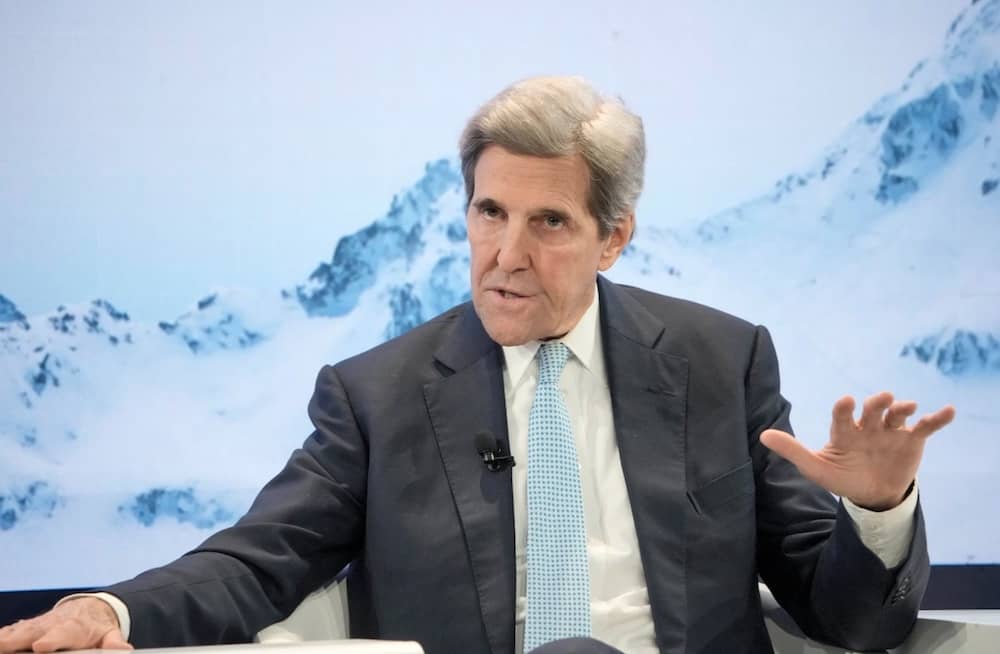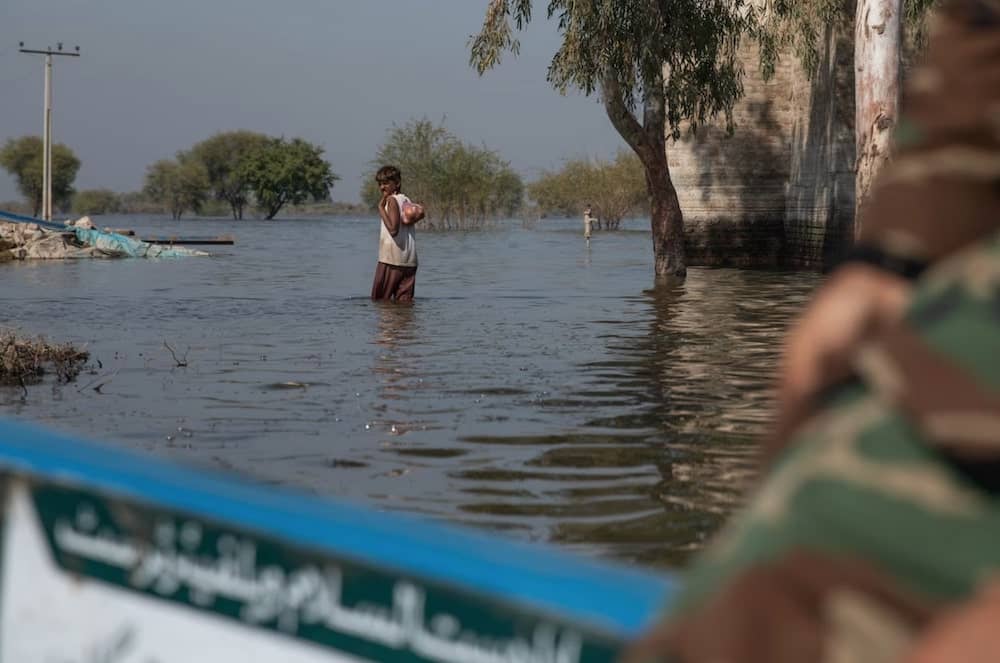Many agree that developing nations need help to cope with a warmer world. Some call the current effort a ‘placebo.’

There were high hopes in November when a global climate summit in Egypt adjourned with the creation of a fund to help poor countries cope with the ravages of global warming.
But less than three months later, there are fewsigns that the United States and other wealthy nations will step up to bankroll the much-hyped fund. That’s why U.S. climate negotiator John F. Kerry said he had a succinct answer last month — at the international economic conference in Davos, Switzerland — when he was asked about what he needed.
“Money, money, money, money,” Kerry recalls saying.
“It’s what we need,” the White Houseclimate envoy added in a recent meeting at The Washington Post. “We need it for the developing world. We need it for the right choices to be made [and] to leapfrog the mistakes.”
Two months after the U.N. Climate Change Conference ended in Egypt, the hopes and promises of that COP27 summit are fading.Countries are struggling to raise large and steady streams of capital needed to shut down fossil fuel plants, switch to renewables, retrain workers, and establish a fund for losses and damages suffered by poor nations after climate-induced disasters and a century of wealthy countries’ carbon emissions.
Duringhis visit to The Post, Kerry said that while large amounts of money have been committed to plans to close coal plants in South Africa, Indonesia and Vietnam, there were still “trillions sitting on the sidelines.”
Harnessing such investment is a consuming focus of those who still dream of a united global response to climate change. Kerry said he and Treasury Secretary Janet L. Yellen, who recently returned from South Africa, have held three or four meetings with the heads of multinational development banks — including the World Bank — urging them to undertake “major reform.” Kerry said these institutions were urged to focus more on climate change than on how they were rated for financial strength, and to use financing tools that would make private investors more comfortable with developing world risks.
“We have repeatedly pointed out to them the urgency of moving rapidly in order to be able to address the crisis of climate,” Kerry said. “They’re concerned more about their ratings than about development.”
World Bank President David Malpass faced calls in September for his removal after he declined to say if he accepted the scientific consensus that man-made burning of fossil fuels was warming the planet. “I’m not a scientist,” Malpass, who was appointed by President Donald Trump, said at a New York Times event. He later modified his remarks, and Kerry has not called for his ouster.
The World Bank said in an October fact sheet that it had increased its climate finance from $10.9 billion in fiscal 2016 to $31.7 billion in fiscal 2022. “This makes us the biggest multilateral funder of climate action in developing countries today,” the fact sheet said.
The bank said it had set a target for climate financing to come to35 percent of its overall lending, resulting in loans of $25 billion annually on average over five years, a figure that many government officials and climate activistssay is far too low.
The World Bank spent nearly $15 billion on fossil fuel-related projects between 2016 and 2021, according to one study. That included a $200 million loan guarantee in 2021 for a gas-fired electricity plant in Uzbekistan.
“The World Bank must immediately stop funding any fossil fuel project,” said Harjeet Singh, head of global policy at CAN International, a network of groups combating climate change.
Kerry wants to tap development banks — institutions that use government funds to spur economic growth in developing countries — to attract private investment. “No one is recommending a reckless abandonment of common sense,” he said. But, he added, the development banks could provide concessionary loans and reduce risks for private investors.
One example is the $8.5 billion South African package to close coal plants, stimulate renewables and overhaul the country’s debt-laden utility. Half a dozen development banks contributed money to the plan. Other sources included South African and international private capital, U.S. money for job retraining and South African government funds. Similar deals have been forged with Indonesia and Vietnam.
“No government in the world has enough money to be able to effect this transition,” Kerry said, adding that the United States would also have trouble providing further sums, “given the makeup of Congress.” He also expressed concerns that China might be distracted on energizing its economy after pandemic lockdowns.
“The only entity or entities that have trillions of dollars is the private sector,” he said. “But they’ve insisted from Day One that it’s not to give away, it’s not charity — it’s investment.”
Malik Amin Aslam Khan,Pakistan’s former minister of state for environment, has a different idea for prying money from wealthy countries to pay for climate damages and losses in undeveloped nations.

Countries that have pumped greenhouse gases into the atmosphere for decades must link a loss and damage fund to steady streams of money coming from current carbon polluters, Malik said. The fund could, for example, tap a portion of Europe’s proposed border adjustment tax on high-carbon imports such as natural gas or air-travel business class tickets.
Otherwise, Malik said, “the risk is that it shall remain a ‘placebo’ fund without any sustainable funding source.”
“It has to be linked to some form of climate reparations,” Malik added. “Unless the countries responsible for pumping carbon emissions into the atmosphere can own up to the responsibility of the global damage that they are causing, this will remain an exercise in futility.”
Kerry cautions, however, that whileCongress is not going to provide direct compensation, the United States frequently provides emergency relief.
One of the development banks whose mandate has changed is the U.S. International Development Finance Corp. (DFC), formerly the Overseas Private Investment Corp. Its mission was altered by the Build Act that Trump signed in October 2018. The law charged the DFC with focusing on economic development and national security, and the agency now uses various tools for putting private capital to work in the developing world. The Build Act also doubled the DFC investment cap to $60 billion.
“We recognize that we’re not going to solve this problem without bringing the private sector in and without mobilizing the capital markets,” said Jake Levine, chief climate officer of the DFC.
The development bankprioritizes investments in low-income and lower-middle-income countries. One example: A package for Belize included $610 million in political risk insurance and sovereign debt relief. It also included a $364 million “blue bond” that included a pledge by Belize to protect 30 percent of its ocean area, double the protected area of marine life.
But many advocates of a special fund say it should be separate from big institutions such as the World Bank and from smaller ones such as the Green Climate Fund, where two dozen countries have equal votes in often-lengthy approval process for project finance. That makes it ill-suited for rescuing those who need “urgent support” in a storm, CAN International’s Singh said.
As the impacts of climate change intensify, a fund for losses and damages would probably focus on adaptation and resilience, Levine said. For example, he said, innovative companies are using data, artificial intelligence and sensing to advise small-scale farmers on how much fertilizer to deploy or when to water their crops.
Malik is not convinced.
“The inconvenient truth about using multilateral institutions is that it quickly transforms into a route to repackage existing funding pipelines or to use the term ‘serving old wine in new bottles,’” he said.
Source: The Washington Post






